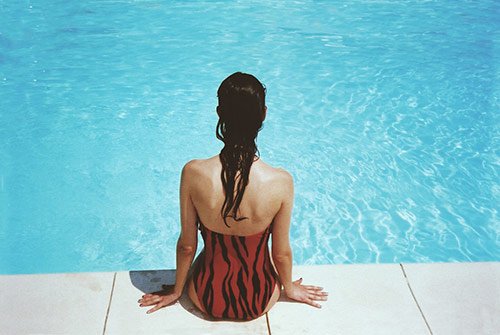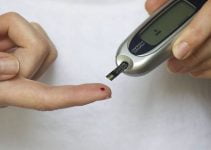
Women all over the world have been perplexed about their monthly menstrual cycles from the beginning of time. There is no doubt that you can relate to this, even though everyone has a unique cycle that changes and evolves over the years.
Not only can your period limit your activities at a certain time of the month, but it could make you feel very uncomfortable, especially when accompanied by cramps.
Some women go about their daily life without problems when menstruating, but others have an uncomfortable time and have to avoid activities such as going to the beach or swimming. Speaking of swimming, you might be wondering if it’s a fact or myth that periods stop in water.
If you enjoy swimming in a pool or at the beach, you might have noticed that your period appears to stop when you are submerged in the water. Like other women, you may be wondering whether or not this is normal, but believe it or not, your period actually does not stop flowing when you are in water.
You can give this theory a test by sitting inside a bathtub that is filled with water. You will notice that your period will continue to flow after a while.
Why It Seems Like Your Period Stops In Water
There is actually a simple explanation for why it seems like you are not bleeding when in water. Your period does not stop because the coating of your uterus will continue to shed, but the counterpressure of water is going to impede the gush and prevent you from seeing the blood in the water.
In addition to that, gravity is not able to pull down the flow for it to come out if you are swimming or floating in a horizontal manner.
Gravity will already not have enough strength to pull out the flow when you are standing in water, which means any counteracting of the effects will only prevent it from drawing out your flow more.
However, you will notice that your period is going to continue flowing as normal once you stop swimming and stand up for a few minutes. Bear in mind though that this type of counter-pressure will not stop menstrual flow at all times.
Depending on the period and the woman, it could continue to leak out and disperse throughout the water without being seen.
Another thing to know is that although your period might stop temporarily when you are submerged in water, it will be a problem if you are swimming in the pool because you are sure to see a red spot on your swimsuit, especially if it’s a light-colored type.
When swimming, it is important to know that any abrupt movement of the lower abdomen will cause changes in the pressure, and blood is going to flow out eventually. This change in pressure could be a simple sneeze.
Once you are out of the pool, the change in pressure will have an exaggerated effect and could cause your flow to come heavier, which is a big problem if there are no clothes for you to put on or a changing room that you can use immediately.
Will a period stop in all kinds of water?
Your menstrual flow can be limited by all kinds of water because they have similar physical properties. This means that the flow of your period will decrease if you are submerged in fresh water, salt water, pool water, cold water, hot water, or even bath water.
Now if you are not wearing a tampon inside the water while on your period, the biggest problem you will have with swimming will be getting in and out since the flow will return to normal once you are out.
Every woman and monthly menstrual flow is different though, which means that the speed at which your flow goes back to normal is going to differ based on your circumstances.
The best thing to do would be to use tampons or not swim while you are on your period. If you are not using tampons, it would be a good idea to avoid getting in the water on your next trip to a water park.
On the other hand, you should enjoy the water with your friends or family if you are using a tampon because it can keep your menstrual flow confined to the inside of your vagina.
But be certain to change tampons on a regular basis.
At this point, you should have a better understanding of why your menstrual flow seems to stop whenever you go swimming in a pool or at the beach.
Based on the information above, you have absolutely no reason not to get submerged in water while having your menstrual cycle as the increased pressure will prevent the blood from coming out in most cases until you are out of the water.




I didn’t know that a females period continued while she was in water until I read this. This was very interesting to me.
Counter pressure from the water is a crappy answer and a lie. If not, explain why water pressure doesn’t affect all women the same? Change this lie with the truth, not a stupid guess.
Your vagina typically should not fill with water when you enter a pool. The same thing that stops water getting in there, still works on Your period but, your period is also working against that bodily function in order to rid itself of the shedding blood.
One function is stronger in some women than the other function.
So while some women have a stronger bodily function to keep water out, others have a stronger bodily function that pushes out the unwanted bodily fluids.
Eventually, pushing out the blood becomes more important to your body than keeping water out given enough time to do so.
When in large bodies of water, like a bathtub, pool or the ocean, a heavy flow will be SLIGHTLY visible but still won’t look like you killed someone.
A light flow will not be visible at all but that does not mean if you take a sample of water it will be menstruation fluid free.
So rinse off after a bath ladies.